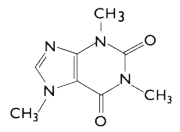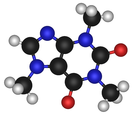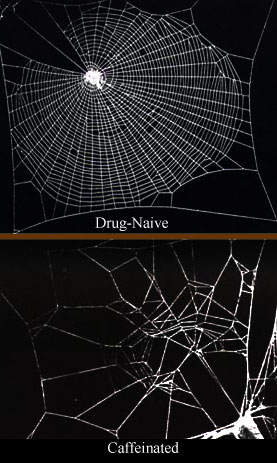Caffeine toxicity by self-intended poisoning produces tachyarrhythmias such as supraventricular tachycardia, atrial fibrillation, ventricular tachycardia and ventricular fibrillation. The risk of cardiac arrhythmias with customary daily consumption of caffeine from coffee, tea, cola, cocoa, and chocolate does not seem to be increased at the ventricular level, but more information is needed about what happens at the supraventricular level (that is, the atrium). Therefore, a recent study in the American Journal of Clinical Nutrition examined the association between the amount of caffeine consumed per day and the risk of atrial fibrillation or flutter in the Danish Diet, Cancer, and Health Study.
From December 1993 through May 1997, 47,949 subjects aged 50 years to 64 years were prospectively examined in the study. Height, weight, blood pressure and total serum cholesterol were measured at baseline. The subjects completed a food-frequency questionnaire (FFQ) and the consumption of caffeine from coffee, tea, cola, cocoa and chocolate was analyzed by quintiles. Probable cases of atrial fibrillation or flutter were identified within the cohort in the Danish National Registry of Patients.
Atrial fibrillation or flutter developed in 555 subjects (373 men and 182 women). The incidence rates of atrial fibrillation or flutter by increasing the quintile of intake of caffeine were 20.8, 23.7, 17.7, 19.8, and 18.8 per 10,000 person-years under follow-up. When the lowest quintile of caffeine consumption was used as a reference, the adjusted hazard ratios in quintiles 2, 3, 4, and 5 were 1.12, 0.85, 0.92, and 0.91, respectively.
Consumption of caffeine was not associated with risk of atrial fibrillation or flutter. There were many strengths in this study, which include the large number of cases with atrial fibrillation, the detailed information on potential confounding factors, the complete follow-up through nationwide, population-based registries, which limit selection and surveillance bias, and the standardized assessment of a sample of the registered outcome events. Some clinicians advise patients with cardiac arrhythmias to avoid caffeine-containing beverages such as coffee and tea. In this large cohort study, the authors could not find evidence for such a practice.
Lars Frost and Peter Vestrgaard. Caffeine and risk of atrial fibrillation or flutter: The Danish Diet, Cancer, and Health Study. Am J Clin Nutr 81: 578-582 (March 2005) [Reprints not available. Address correspondence to L. Frost, Department of Cardiology, Aarhus Sygehus, Aarhus University Hospital, DK-8000 Aarhus C, Denmark. E-mail: Lars.Frost@as.aaa.dk]
COPYRIGHT 2005 Frost & Sullivan
COPYRIGHT 2005 Gale Group



